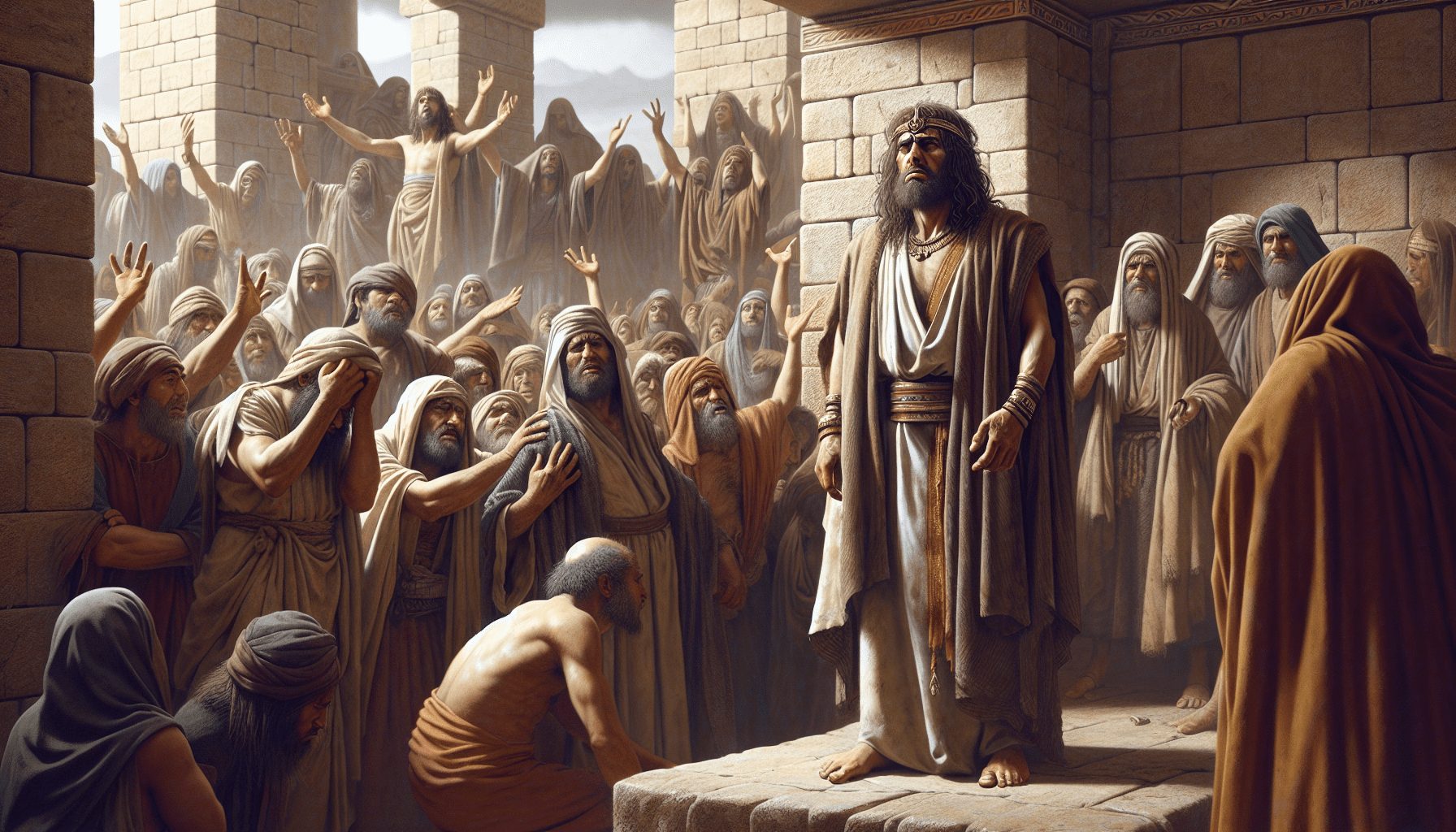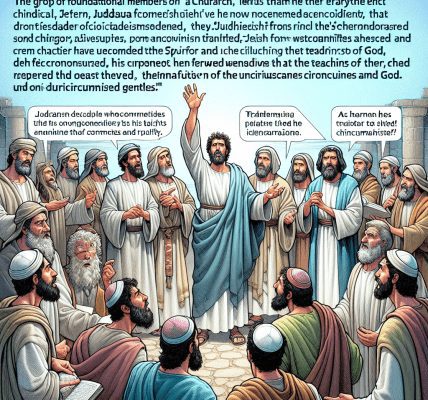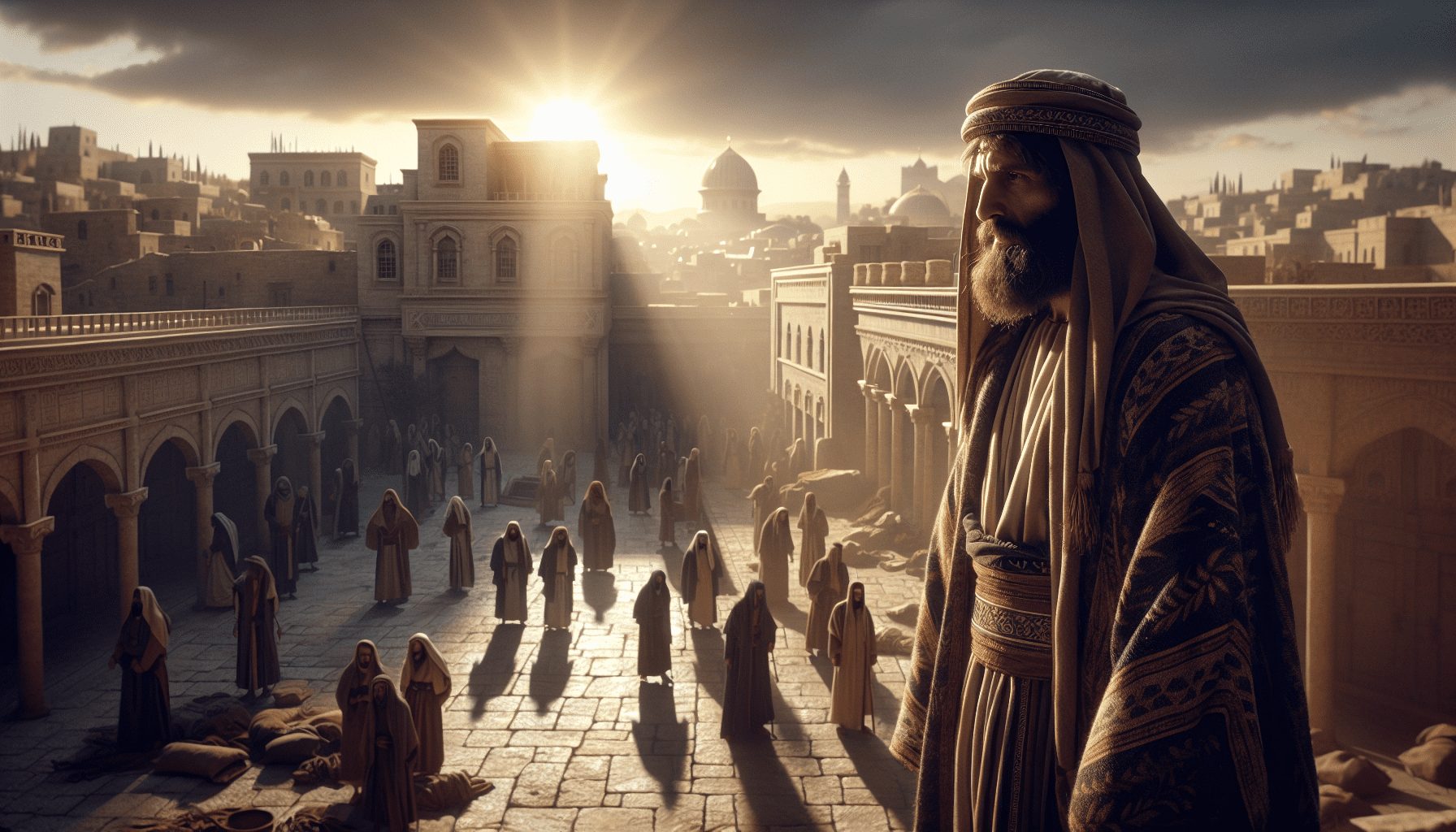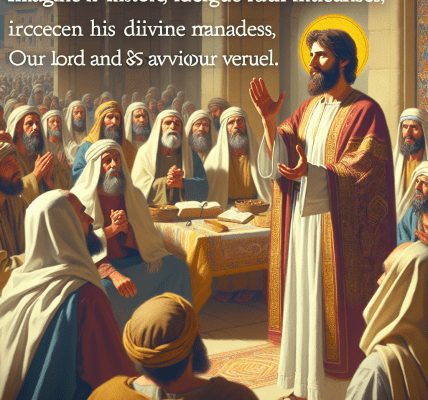**The Reign of Jehoshaphat: A King After God’s Heart**
In the land of Judah, after the death of his father Asa, Jehoshaphat ascended to the throne. He was a man of noble spirit, his heart steadfast in the ways of the Lord. Unlike many kings before him who wavered between faithfulness and idolatry, Jehoshaphat resolved from the beginning to walk in the footsteps of his forefather David, seeking not the false gods of the nations but the God of Israel alone.
### **A King’s Devotion to the Lord**
Jehoshaphat strengthened himself against the kingdoms around him, not by might alone but by his unwavering trust in the Lord. He stationed troops in all the fortified cities of Judah and placed garrisons throughout the land—even in the territories of Ephraim that his father Asa had captured in earlier battles. But his true strength lay not in his armies but in his devotion.
The Lord was with Jehoshaphat because he followed the example of David’s early years, refusing to seek the Baals. Instead, he sought the God of his fathers and obeyed His commandments, not turning aside to the right or to the left. His heart was lifted not in pride but in reverence, and he took great delight in the ways of the Lord.
### **A Nation Taught the Law of God**
Understanding that a kingdom flourishes when its people know the law of the Lord, Jehoshaphat took a bold step. In the third year of his reign, he sent out his officials—men of wisdom and integrity—to teach throughout the cities of Judah. Among them were priests like Ben-hail, Obadiah, Zechariah, Nethanel, and Micaiah, as well as Levites such as Shemaiah, Nethaniah, Zebadiah, Asahel, Shemiramoth, Jehonathan, Adonijah, Tobijah, and Tob-adonijah. Even some of the king’s own princes, Elishama and Jehoram, joined this sacred mission.
These men carried with them not just the words of the law but the very heart of God. They traveled from city to village, reading from the Book of the Law of the Lord, explaining its precepts, and ensuring that every man, woman, and child in Judah understood the covenant that bound them to their God. The people listened with reverence, for the word of the Lord had not been so clearly proclaimed in many years.
### **The Fear of the Lord Falls Upon the Nations**
As Jehoshaphat’s reforms took root, the surrounding kingdoms took notice. The Philistines, who had long been a thorn in Israel’s side, brought tribute to Jehoshaphat—silver and gifts in acknowledgment of his growing power. Even the Arabians, fierce and untamed, sent him flocks: seven thousand seven hundred rams and seven thousand seven hundred goats.
The hand of God was upon Judah, and the fear of the Lord fell upon all the neighboring lands. No one dared make war against Jehoshaphat, for they saw that the Lord fought for him. His kingdom grew in wealth and stability, his storehouses filled with abundance, and his armies grew ever stronger. Mighty men of valor stood ready in Jerusalem, organized according to their fathers’ houses.
From Judah, there were commanders like Adnah, who led three hundred thousand mighty men of valor. Next to him was Jehohanan, commanding two hundred and eighty thousand. And Amasiah, son of Zichri, who willingly offered himself to the Lord, led two hundred thousand mighty men.
From Benjamin, there was Eliada, a valiant warrior with two hundred thousand men armed with bow and shield. And next to him was Jehozabad, with one hundred and eighty thousand men prepared for war.
These were not mere soldiers; they were men who served with loyalty, not just to their king but to the God of their fathers.
### **A Legacy of Faithfulness**
Jehoshaphat’s reign became a golden era in Judah’s history—a time when the king sought the Lord with his whole heart, and the people followed. The high places and Asherah poles were not yet fully removed from the land, but the foundation was laid for true revival.
The king himself grew in greatness, building fortresses and storage cities throughout Judah. His works were many, his influence vast, yet his greatest achievement was this: he turned the hearts of his people back to the Lord.
And so, the word of the prophet spoken long ago was fulfilled in Jehoshaphat’s reign: *”If my people, who are called by my name, will humble themselves and pray and seek my face and turn from their wicked ways, then I will hear from heaven, and I will forgive their sin and will heal their land.”*
For a time, Judah knew peace, prosperity, and the sweet favor of the Lord—all because one king chose to seek God above all else.




